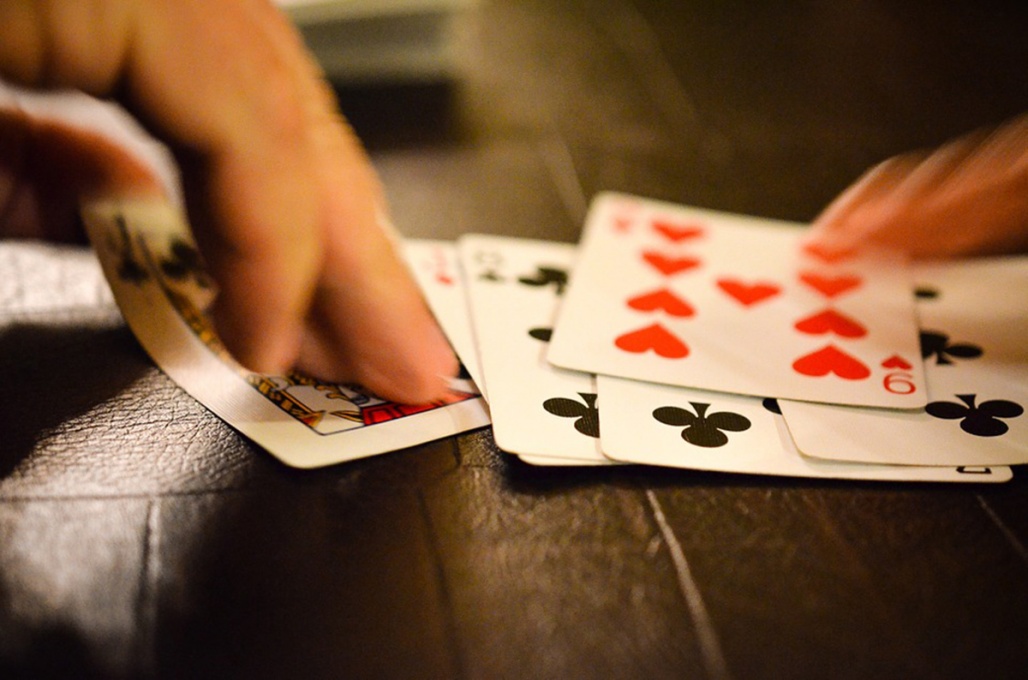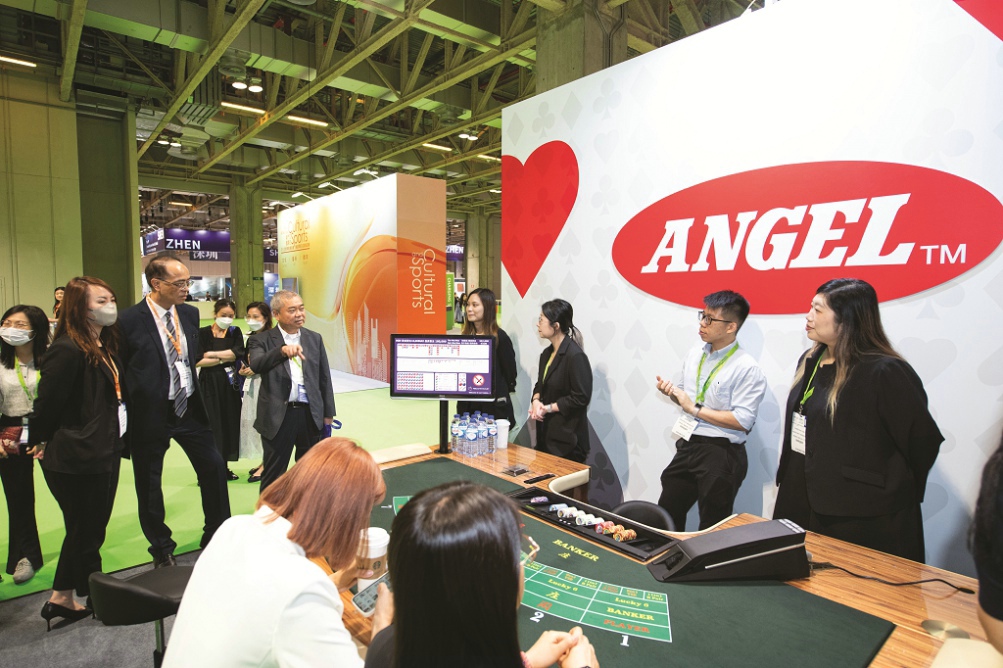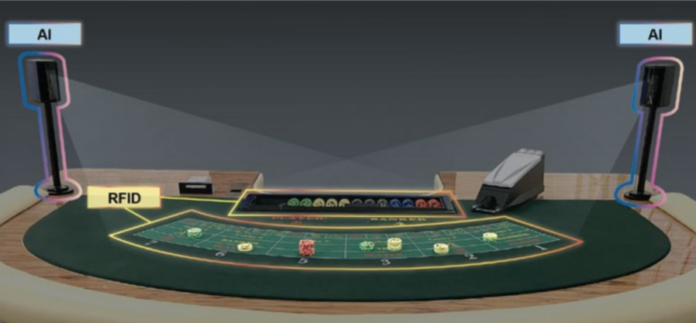The introduction of “smart” gaming tables in Macau casinos has ignited industry interest due to their efficient gameplay data analysis. Analysts project significant revenue growth, leading to widespread implementation this year
Nelson Moura
The implementation of “smart” gaming tables in Macau casinos has become a hot topic of late, due to their capacity to collect and analyse gameplay data.

In the current market, casinos have three choices of smart tables, namely, those with radio frequency identification (RFID) technology embedded in the table, float, and chips to track gameplay and patron activity, those equipped with cameras, including in some instances facial and body recognition, to track gameplay and patron activity; and hybrid tables, utilize a blend of RFID combined with video analytics to track gameplay and patron activity.
In a recent report, Citi revealed that such tables now represent approximately 10 percent of all tables in the SAR, citing its use across various casinos in the city, including observations at MGM, Londoner Casino, and Wynn, and plans for further rollout by Galaxy, Melco, and SJM throughout 2024, the brokerage added,
For analysts George Choi and Ryan Cheung, such technology has the potential for a 5.9 percent increase in GGR for every five seconds saved per game of baccarat, an acceleration expected to contribute significantly to revenue growth without relying on higher footfall.
The brokerage considered that gaming operators have a widespread plan to implement smart gaming tables across all baccarat tables, with some aiming to complete the rollout by the end of this year.

One by one
Smart gaming tables have already been deployed in Asia Pacific integrated resorts, namely, in Singapore and Australia, with Macau now progressing with its adaptation to the technology with the backing of local gaming regulatory authorities.
In March of this year, during a meeting with Macau gaming operators, the casino regulatory body, the Gaming Inspection and Coordination Bureau (DICJ), urged them to update their monitoring systems on the gaming floor, and implement ‘comprehensive management through technology’.
This specific term used by the DICJ seemed to indirectly address the installation of smart gaming tables, as a way to improve the efficiency of casino operation and management, and of course, assets the gaming watchdog to oversee gambling operations.
Recently, some of the SAR’s six gaming concessionaires mentioned the implementation of this technology in their properties in their most recent financial reports for the first quarter of 2024.
The Chairman of Galaxy Entertainment Group, Lui Che Woo, indicated that the gaming operator is in the process of “implementing smart tables, which will drive further efficiency across the gaming floor.”.
Brokerage Jefferies Hong Kong Ltd, in a note citing key points discussed by Galaxy Entertainment’s management during a conference call on the recent results, stated that smart table deployment by GEG will be launched from July onwards and be “completed by year-end.”.

In a previous conference call, GEG’s CFO, Ted Chan Ying Tat, stated that RFID would contribute to a lot of improvements in the effectiveness of the gaming floor as well as its “integrity.”.
“We’re already starting the process, and we are planning to launch out all these technology-related initiatives during the year,” he said at the time.
In MGM China’s first quarter conference call, the group’s CFO and President, Hubert Wang, gave a comprehensive explanation of the multiple benefits of smart tables.
“First of all, you have game security. Everything is tracked, and it’s very difficult to cheat a game; it’s almost impossible. We have cases where people thought that they got away, but as long as the chips come back, they were caught,” Wang noted.
There is also operating efficiency because it could require far less supervision, and manning. These are just from a basic operations standpoint.
The MGM China CFO also described how, thanks to the capability of tracking all the play, smart tables allow operators to have a lot more data to be used for precision marketing based on various customers’ playing levels and for real-time rewards.
“It allows us to develop new games as well. For instance, we already launched insurance back in this market, and this is impossible to do manually. And with this technology, we can do it. And it’s also very favourably viewed by the regulators in this environment,” he described.
“Everybody is trying to implement that, and I think that we have at least several years of lead in the implementation and also take advantage of this technology to execute various programmes.”
In their respective first quarter conference call, the CEO of Melco Resort & Entertainment Limited described that once every operator implements smart tables, illegal activities such as those connected to “unlicensed junkets”, will be eliminated.
In the same call, Geoffrey Stuart Davis Executive VP and CFO of Melco revealed the group would receive the delivery of its first set of tables in the second quarter, with full implementation by approximately the same time next year.
“Although it will be a small enough number, it will be more on a pilot or trial basis as we continue to do our learnings with full-scale adoption pacing out really over the next year until we have our full force of tables. In the short term, we’re looking at how we might deploy them within specific areas within the property,” Davis described.
In response to questions submitted by Macau Business about the use of AI, RFID, and facial recognition in smart gaming tables, the Director of the Office for Personal Data Protection (DSPDP) highlighted that these technologies fall under the purview of the Personal Data Protection Act (Law no. 8/2005). Based on these provisions, the Office stated that if smart gaming tables collect and process personal data, they must adhere to these regulations. Specifically, facial recognition technology may involve sensitive data, requiring strict compliance with the outlined conditions for lawful processing and principles like data adequacy and security. The DSPDP added that all electronic surveillance and operational equipment used by gaming operators in Macau must be approved by the Gaming Inspection and Coordination Bureau (DICJ).
Macau Business contacted the DICJ with a series of questions on this matter, including how many gaming concessionaires have requested to implement these smart tables in their properties, how many smart tables are currently being used in Macau, and if the Bureau has made any special requests regarding what data these tables should collect or what functions they should provide. We also asked the gaming watchdog if it is actively incentivising gaming companies to implement smart tables and what advantages the technology could offer for regulatory purposes. However, no response had been provided by the DICJ at the time of printing.
“Smart tables will change the way table game operates. It’s a big thing. It’s a big change for users as well” – Asuka Kurahashi, Angel Macau President
“While the primary interest of casino operators is data collection and security enhancement, they also prioritize maintaining game speed and table layout flexibility to optimize player experience and revenue generation” – Asuka Kurahashi, Angel Macau President

The supplier side
For Angel Macau President, Asuka Kurahashi, smart table technology offers considerable advantages in improving gaming operations efficiency and security while maintaining the pace of live casino games.
In an interview for Macau Business, Kurahashi highlighted that smart tables collect data using AI and RFID technology, digitising bet movements without disrupting gameplay, and were able to reduce supervision workload rather than necessitate additional personnel.
Mostly known for its playing cards and card shoes in the casino equipment supply market, the Japan-based Angel Group is also taking a chance in the smart tables business, having developed an AI-RFID hybrid design.
AI and RFID enable the real-time capture of data, such as game results per table, betting amounts, and casino chip inventory. By comparing the digital information of the game result, the bet amount for each bet location, and the chip inventory in the chip float, the theoretically correct balance of the game can be analyzed. Game progress can be confirmed, by checking the collection and payout conducted by the dealer at each table, and by checking for any fraud during the game.
“While the primary interest of casino operators is data collection and security enhancement, they also prioritise maintaining game speed and table layout flexibility to optimise player experience and revenue generation,” Kurahashi noted.
Kurahashi noted the successful implementations of smart tables in other gaming markets like Singapore and Australia, emphasising the significant operational changes associated with adopting this technology.
“The main interest of the casino operators is, of course, they want to obtain all those data of that table games, how much betting is taking place and how much they are playing on each hand. But of course, they want to increase the security,” she described.
“They want to have those kinds of data and they want to secure the game integrity. But at the same time, their concern is that they don’t want to slow the game speed because of the system. Because it’s revenue, right? If they slow the game, then they lose the revenue.
Operators also do not want to have to change the table’s layout or design, or if implanting changes, they do not want the system to limit the table layout design.
“This is because the table layout design impacts how players bet. A side bet is much higher than a house bet, right? So the casino wants more side bets and wants to encourage the player to side bet,” Kurahashi adds.
“To do this table layout design is very important. So the casino wants to have a free experience. Any table layer they can use and system their system can support.”
Angel is currently working with a Macau concessionaire, initially only in one Cotai property but with plans to progressively roll out smart tables across all properties, with an initial focus on Baccarat tables.
At the same time, Angel has maintained negotiations with operators across various Asian countries, including South Korea, Australia, the Philippines, Singapore, and Malaysia.
Smart table technology has been in development for over a decade, with Angel foreseeing its market entry. However, the complexity of smart table development, along with external factors like the COVID-19 pandemic, delayed its adoption.
“Smart tables will change the way table game operates. It’s a big thing. It’s a big change for users as well. It involves a load of different departments. One is table operation, of course. One is surveillance because they need to monitor the game security,” Kurahashi told MB.
“Another is the marketing team because now they can get the data of each patron’s betting history. It’s a huge project.”
























